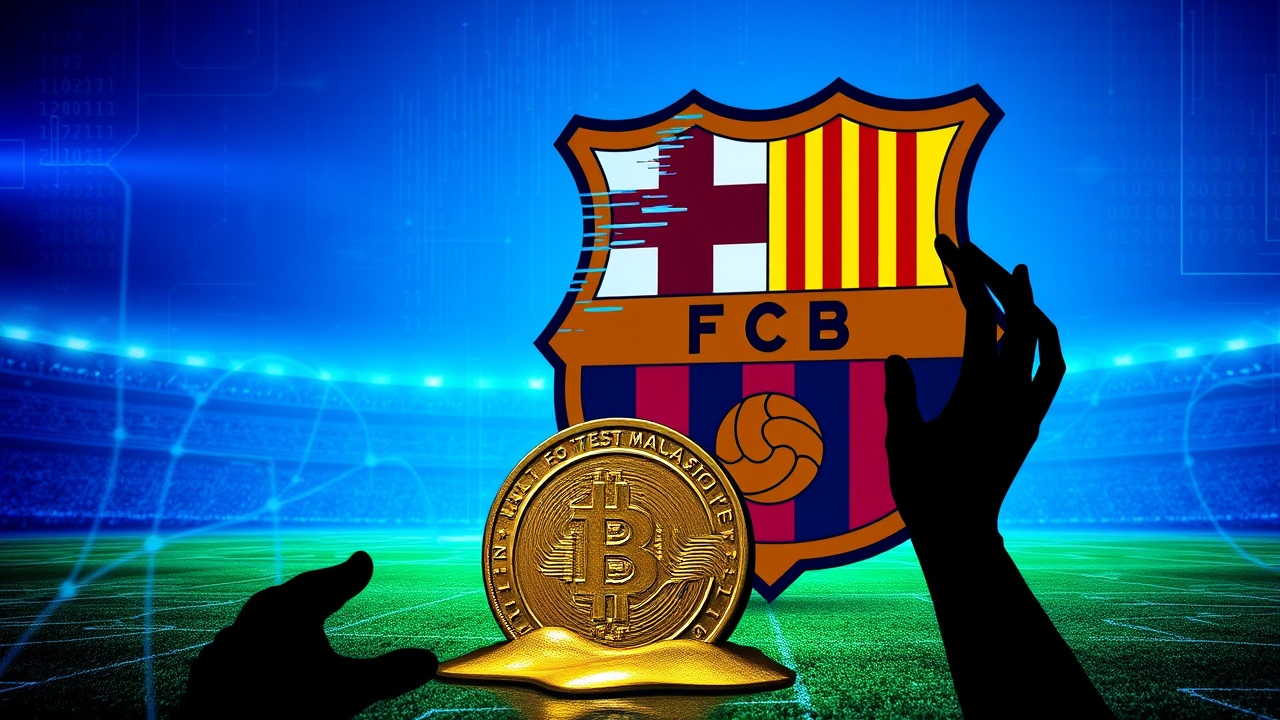Incident Overview
In a striking incident highlighting the vulnerabilities within the cryptocurrency landscape, FC Barcelona’s Instagram account was recently compromised, leading to the promotion of a fictitious cryptocurrency named $FCB coin. This breach represents a growing trend in which scams specifically targeting cryptocurrency enthusiasts are becoming alarmingly frequent. A recent Chainalysis report reveals an astounding loss of over $3 billion due to crypto-related scams in 2024, with a substantial share attributed to phishing campaigns found on social media platforms.
Details of the Scam
The hackers behind the $FCB token falsely claimed it was an initiative supported by the club, leveraging both the allure of exclusive investment opportunities and the rising popularity of the Solana blockchain, known for its efficient and cost-effective transactions. Initially, the scam caused the token’s market cap to surge to $3 million before plummeting to approximately $45,000 shortly afterward. Disturbingly, fans lured by the promise of special rewards and pre-sale access unknowingly risked their investments without the possibility of recovery, given the nature of cryptocurrencies.
Historical Context
This incident is not isolated; it echoes previous high-stakes social media hacking cases, such as the notorious 2020 Twitter breach that affected numerous celebrity accounts to promote a Bitcoin giveaway scam, netting attackers over $100,000 in mere minutes. Such events serve as a stark reminder of how hackers frequently exploit trusted brands and public figures to manipulate naive users into transferring their digital assets.
Importance of Due Diligence
Although FC Barcelona has since regained control over its social media account, the $FCB scam underlines a critical point for all cryptocurrency participants: due diligence is vital. Enthusiasts and investors should verify claims through official channels before engaging with new tokens. Moreover, utilizing wallets and exchanges that implement strong security protocols, such as two-factor authentication, can significantly diminish the risk of falling prey to such scams.
Regulatory and Community Response
To combat the increasing wave of fraudulent activities, regulators and blockchain projects are ramping up efforts. Notably, platforms like Solana are developing tools designed to monitor suspicious token launches and alert users regarding potential fraud. Furthermore, investors are encouraged to focus their engagements on verified NFT collections and legitimate token releases as safer avenues for entering the competitive world of cryptocurrency.
Conclusion
Ultimately, being vigilant against unverified tokens and maintaining awareness of official announcements facilitates healthier interaction within this rapidly evolving digital ecosystem. The FC Barcelona hacking incident serves as a cautionary tale for both newcomers and seasoned cryptocurrency investors alike, reinforcing the importance of thorough research and caution in a high-risk domain.




